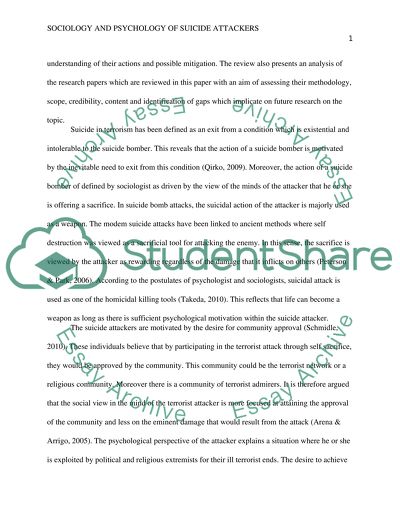Cite this document
(“Sociology and Psychology of Suicide Attackers Research Paper”, n.d.)
Sociology and Psychology of Suicide Attackers Research Paper. Retrieved from https://studentshare.org/psychology/1399387-sociology-and-psychology-of-suicide-attackers
Sociology and Psychology of Suicide Attackers Research Paper. Retrieved from https://studentshare.org/psychology/1399387-sociology-and-psychology-of-suicide-attackers
(Sociology and Psychology of Suicide Attackers Research Paper)
Sociology and Psychology of Suicide Attackers Research Paper. https://studentshare.org/psychology/1399387-sociology-and-psychology-of-suicide-attackers.
Sociology and Psychology of Suicide Attackers Research Paper. https://studentshare.org/psychology/1399387-sociology-and-psychology-of-suicide-attackers.
“Sociology and Psychology of Suicide Attackers Research Paper”, n.d. https://studentshare.org/psychology/1399387-sociology-and-psychology-of-suicide-attackers.


